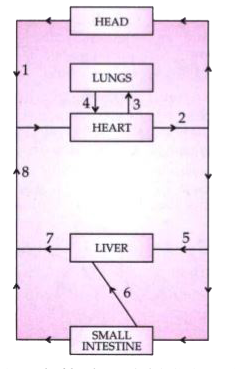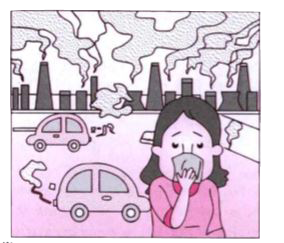[A]: Treatment of malaria by vaccination is out of question.
[R]: Plasmodium does not produce antibod- ies in human blood.
If both A and R are true and R is the correct explanation of A
If both A and R are true but R is not the correct explanation of A
If A is true and R is false
If both A and R are false
The correct Answer is:A
Step-by-Step Solution:
1. Understanding the Assertion (A): The assertion states that "treatment of malaria by vaccination is out of question." This implies that vaccination is not a viable method for treating malaria.
2. Understanding the Reason (R): The reason provided is that "Plasmodium does not produce antibodies in human blood." This suggests that the malaria-causing parasite, Plasmodium, does not elicit an immune response that would be necessary for a vaccine to be effective.
3. Explaining Malaria and its Pathogen: Malaria is caused by the Plasmodium parasite, which has several species, including Plasmodium vivax and Plasmodium falciparum. The disease is transmitted through the bite of infected female Anopheles mosquitoes.
4. Mechanism of Infection: When an infected mosquito bites a human, the Plasmodium enters the bloodstream and travels to the liver, where it multiplies. After this, it infects red blood cells (RBCs), leading to their rupture and the release of a toxic substance called haemozoin, which causes the characteristic symptoms of malaria, such as fever.
5. Vaccination and Immune Response: Vaccination works by introducing an antigen that stimulates the immune system to produce antibodies. However, in the case of malaria, the Plasmodium parasite ruptures the RBCs and does not produce antibodies in the human body. Therefore, the immune system does not have a target to create an effective immune response through vaccination.
6. Conclusion: Since vaccination relies on the ability of the immune system to produce antibodies against a pathogen, and since Plasmodium does not produce antibodies, the assertion that "treatment of malaria by vaccination is out of question" is true. The reason that "Plasmodium does not produce antibodies in human blood" is also true. Therefore, both the assertion and the reason are true, and the reason correctly explains the assertion.
Final Answer:
Both the assertion and reason are true, and the reason is the correct explanation for the assertion.
---
Both the assertion and reason are true, and the reason is the correct explanation for the assertion.
Topper's Solved these Questions
Similar Questions
Knowledge Check
The human body does not produce:-
AEnzymeBVitaminsCProteinsDNucleic acid
Infective stage of Plasmodium after entering in human blood first migrate to
View SolutionHealthy human does not excrete out in his urine
View SolutionThe diagram below represents the simplified pathway of the circulation of blood. Study the same and answer the questions that follow :

Draw a diagram of the different blood cells as seen in a smear of human blood.
View Solution[A]: Male anopheles does not spread ma- laria.
[R]: It does not carry plasmodium
View SolutionGive the scientific name of the parasite that causes malignant malaria in humans. At what stage does this parasite enter the human body? Trace its life cycle in human body.
View SolutionIn the following questions, a statement of assertion (A) is followed by a statement of reason (R )
A : PCl5 exist but NCl5 does not
R : Nitrogen is highly inert.
View SolutionGiven below is a representation of a type of pollution. Study the picture and answer the question :

How does this pollution affect human health ?
View Solution
